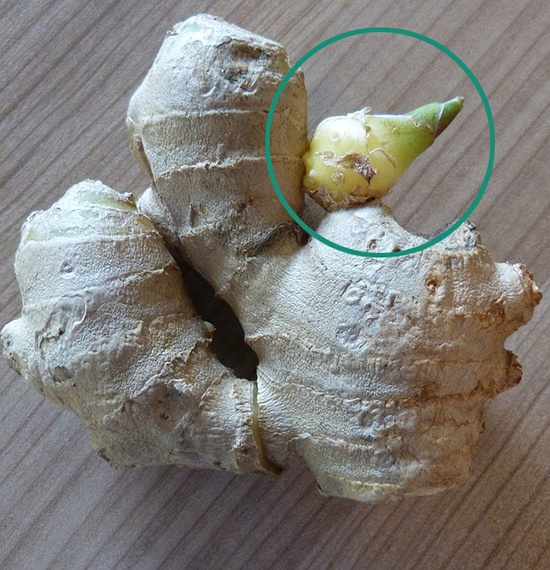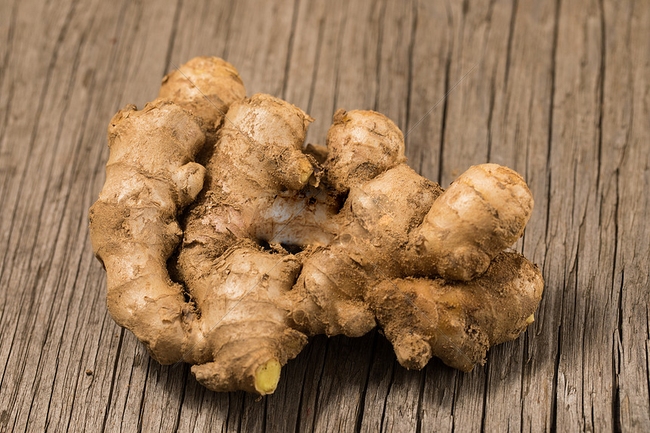Ginger is a widely used and cost-effective ingredient in cooking and beverages. However, it can be challenging to select fresh and delicious ginger. In this article, we will share three essential things to consider when purchasing ginger to avoid bringing home any diseases unintentionally.
Tips for Buying Ginger
Choose Ginger with Sprouts
When buying vegetables, including ginger, freshness is key. To determine if ginger is fresh or old and preserved for a long time, look for bulbs with one to two fresh shoots. Avoid ginger bulbs with excessive shoots, as the shoots can absorb the ginger’s nutrients. Remember to remove any shoots after purchasing to retain the ginger’s nutrients!

Sprouted ginger is fresh ginger
Ugly Appearance is Better
Avoid purchasing ginger bulbs with overly clean, smooth, and white skin. These attractive appearances often indicate that the ginger has been soaked in chemicals, which can be detrimental to health. Instead, choose ginger bulbs with slightly rough skin and soil stains.

Do not choose overly beautiful ginger bulbs
Check the Ginger Flesh
If possible, request permission from the seller to break a ginger bulb in half. Fresh and nutrient-rich ginger will have clear circular veins. Select ginger bulbs with this characteristic. Avoid purchasing ginger that appears spoiled, rotten, or low in nutrients. Spoiled ginger will have blurry veins and visible fibers. Additionally, you can assess the quality of ginger flesh by examining the folds in the ginger skin. The clearer and wider the folds, the fresher, more delicious, and more nutritious the ginger will be.

Ginger with less fibrous flesh is fresh, delicious, and nutritious
These tips will help you choose fresh, delicious, and nutritious ginger.
Benefits of Ginger You May Not Know
1. Treating Colds
Ginger’s warm nature is excellent for treating colds and fevers. When consumed with warm water, ginger dilates blood vessels, promotes sweating, and supports blood circulation. It helps warm the body and prevents respiratory viruses during cold weather.
2. Treating Digestive Diseases
Ginger’s spicy nature and beneficial compounds make it effective in treating digestive symptoms such as belching, acid reflux, and heartburn. It is a natural remedy for resolving digestive disorders and other intestinal problems. Ginger tea provides similar effects. For those with poor appetite or appetite loss due to illness, consuming a moderate amount of fresh ginger daily helps regulate blood sugar levels, stimulate digestion, and improve nutrient absorption.
3. Anti-inflammatory Properties
Ginger’s anti-inflammatory effect is highly valued, especially in the treatment of gastric ulcers. It offers pain relief and reduces swelling without the side effects associated with other anti-inflammatory drugs. Additionally, ginger is beneficial in treating oral diseases such as gum inflammation, tooth displacement, and tooth decay. Rinsing the mouth with ginger water provides better results than consuming ginger directly.





































